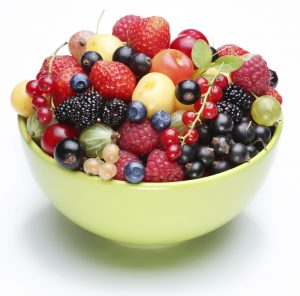If you have a behavioral addiction, you know how difficult it can be to overcome it. One of the hardest to overcome can be a food addiction, as you’re constantly craving more food than ever before. Although it sounds like a condition that isn’t that serious, if left untreated a person can go through seriously unwanted changes in their body. In fact, certain foods can have a negative effect on your brain if you eat them for long enough. As a person who had a form of food addiction in the past, I know how managing tough cravings can be because it can totally take control of your body. You can’t focus and all you want to do is have a certain food to emotionally feel positive again. Yet, allowing food to be seen as an emotional crutch than nutritional fuel is a slippery slope to major health problems.
Be safe and take care of your body as much as you can. Knowing how a process addiction, especially one with food, develops is key to prevent it from happening to you in the future. You don’t have to track your calories or macros and you won’t have to be eating salads every day to avoid having one. Addictive behavior is built up in your system over time, so it’s a multitude of bad food choices and binges without learning how to treat yourself better. Let’s go over the basics of food addiction and the steps to keeping your body happy and healthy!

- Food addiction is a process addiction that comes up from being dependent on certain foods in your diet. It could be junk foods that make you happy and feel the same kind of “high” another person could get from a drug. Scientists found that the neurotransmitters that are activated from binging on your favorite foods are identical to the ones found in drug addicts. This means that addictive behavior with food quickly builds into an intense condition and leads to a very unhealthy relationship with food. Food addiction isn’t about a lack of willpower, it’s caused by the intense amounts of dopamine that enters the brain with each “dose” of food consumed.
- Symptoms can be easy to spot with food addiction. A person who has it will easily get cravings, even after they’re full and ate a wholesome meal beforehand. This is due to the emotional tie they have with food to consume it no matter what. An addict can also easily overeat when they give into a craving, as they eat to the point of feeling overly stuffed instead of satiated. Additionally, an addict can make up excuses to feel better about giving into their feelings. They may try several times to stop their addiction but each attempt seems to prove unsuccessful. This shame and embarrassment often causes a person to consume large amounts of unhealthy foods in privacy so they don’t risk any critique from others. If you can relate to a few of these symptoms, you likely have a relationship with food that is unhealthy and needs to be improved. However, if you can identify with almost all of these symptoms, you definitely have a food addiction on your hands that must be dealt with.
- Threats of food addiction are serious. If you don’t treat yourself, you can risk developing much more serious diseases like obesity, type two diabetes, heart disease, cancer, and depression in the long run. A few cookies each day easily adds up to thousands of grams of unhealthy fats that can clog your system each year if you aren’t careful. Mentally, having a long term food addiction also depletes your self-esteem and make you extremely dissatisfied with your body. You are what you eat! Never underestimate the impact between proper nutrition and your health, so make sure you’re really thinking about what you are putting into your system day in and day out.
- Treating a food addiction takes discipline. Telling yourself to completely avoid certain foods is impossible, as in most cases it usually makes you crave it even more. However, if you remind yourself to abstain from foods that are bad for you for reason of living a healthier and longer life, you’ll have a great chance to stick to that promise. Cutting those foods out of your environment so they are no longer in sight is a great way to decrease your level of cravings and yearn for them no longer. To start, write down a list of foods that could trigger your addictive behavior. These foods, as great as may they taste, must be avoided at all costs so you don’t fall back into your old habits. To make your life a little easier, be sure to also jot down a list of restaurants or fast food joints that serve healthy options while you’re out. Sticking to a healthy diet without the foods you once binged on isn’t as hard as you think. These days, almost every food joint as a section of their menu that displays nutritional information and is heart healthy for the customer to eat without worry.
- Remember that this isn’t a crash diet. Being healthy and taking care of your body’s a lifestyle that you must adhere to every day. Even the most athletic bodies out there still experience sugar or carb cravings that are hard to shake off. We’re human, and it happens. However, making the choice to eat something more wholesome than a chocolate bar, donut, or milkshake is in your control. Not only will you be saving yourself from weight gain, but you’ll also be saving yourself from spending extra dollars on snacks that only do you harm.
Gain Insight
By now you hopefully have gained enough information to assess what foods in your life should be cut out from the effect it creates on your body. If you’re truly honest with yourself, you’ll know immediately what foods you’re always craving to binge on. Make a pact with yourself to limit these in the beginning of your rehab journey and work up to cutting them out completely.


